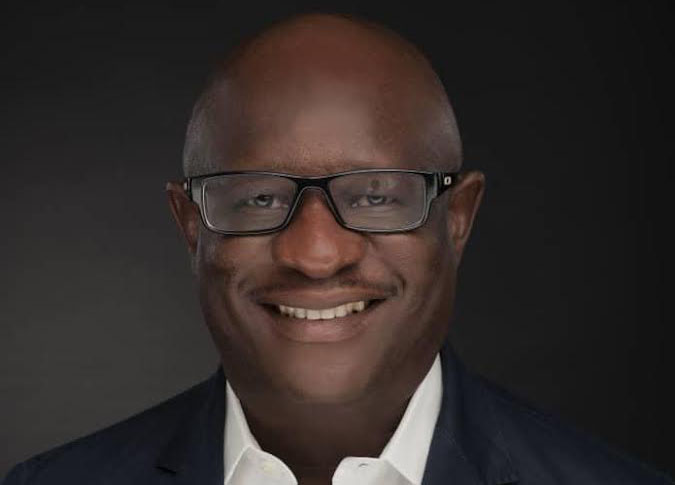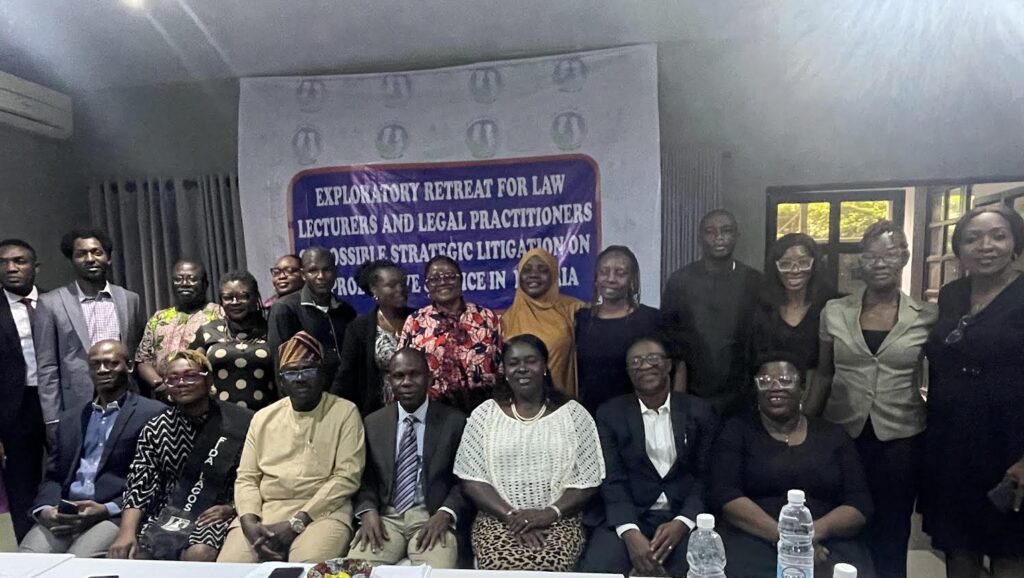
Being paper delivered by Hon. Justice Abiodun A. Akinyemi (Judge of the High Court of Ogun State, Abeokuta) at the maiden edition of the Physical Distinguished Personality Lecture Series of the Faculty of Law, Redeemers University, Ede, Osun State on Tuesday, February 27, 2024.
CONTINUED FROM LAST WEEK
A prisoner to conscience
In everything that a man does in life, his conscience speaks. Conscience tells him whether what he is about to do, or has done, is right or wrong, good or evil. There is however, no endeavour where conscience speaks more loudly to its owner than in judging. In judicial thinking, conscience plays a major role. It warns you when you are about to miscarry justice and convicts you when you have done injustice. It also gives you affirmation when you do justice.
The conscience of a judge is never silent. It always speaks. The question is whether its owner listens or does not listen to it. The conscience of a judge is nurtured by his faith or belief, for his faith or belief is his own truth. Yet, he must not substitute his own truth for the truth in the case. The role of his conscience is to nudge him into unraveling the truth in the case and when he succeeds in finding it, his conscience will bear witness. The judge’s conscience is further influenced by the sacred oaths of office and allegiance to the Constitution sworn to by him upon his appointment as a judge. So, when he sits in judgment over his fellow men, he is actually the one on trial.
A trial of and by his own conscience. The conscience of a judge is similar to that of a preacher who stands behind the pulpit to preach repentance and salvation to others. Every time he is about to fall into temptation, his conscience flashes to his mind’s eye the sermons on piety he had sanctimoniously preached to others. It is amusing how commentators and critics assume that judges have no conscience. Nothing can be farther from the truth.
Speaking from personal experience, I submit boldly that no assignment on earth puts the fear of God in a man, more than the work of a judge. As you sit in judgment over others, you metaphorically draw a dagger at your own heart. As you judge, you are being judged. If truly there is a heaven for the righteous and a hell for the unrighteous, (and I believe there are), with every judgment given, a judge draws closer or farther away from one or the other. Of course, there are men and women without the fear of God everywhere, and the bench is not an exception. However, for any sane person privileged to sit in judgment over others, the sheer nature of the revelations that the work exposes him to, is sufficient to compel him to fear God. The point I am making is that majority of judges, even if not given to strong religious persuasion, are men and women of good conscience, determined to do what is just and fair, within permissive legal boundaries.
A person guided by conscience is more likely to make mistakes of the head rather than of the heart. There is allowance for mistakes of the head in adjudication. That is the wisdom behind the creation of appellate courts. Their job is to correct mistakes of the head. What there is no allowance for, are mistakes of the heart. There are no appellate courts on earth for mistakes of the heart to be corrected, because unlike mistakes of the head, which are found on the record of proceedings, mistakes of the heart are never put on the record of proceedings. They are only recorded in the unseen heart of the culpable.
A Prisoner Of Facts
The parties to a case are the masters of the facts in their case. The judge is a prisoner of the facts in the sense that he has no right, power or authority to go outside of the facts as presented before him by the parties and their witnesses. Neither the Constitution nor the law, statutory or judicial, vests him with authority to go outside of the facts presented by the parties. He has no inherent jurisdiction to do so. To do so is a sacrilege that will not only taint justice, but may also cost him his job if he is found to constantly do so.
Therefore, notwithstanding what other facts of the case may be awash in the public arena, the judge carefully ensures that his thinking is not influenced by them. He must shut them out of his mind. For example, if during an election, there are acts of rigging, intimidation and other malpractices openly displayed in the public or even personally witnessed by him, and case involving the incident comes before him, he cannot take those facts into consideration when deciding the case. He can only rely on what the aggrieved parties plead and prove before him. If they are unable to satisfactorily do so, his duty is to dismiss the case. Of course, to the losing parties and the public that was fully aware of the said malpractices, the judgment of the court or tribunal would be perceived to be unjust or perverse. If, on his way to court, he drove past two people fighting and saw who the aggressor was, and they were both later brought before him upon a charge, he must decide the case based only on what is proved before him, rather than what he saw, otherwise, it would amount to a miscarriage of justice. The law is that the court must not rely on extraneous materials or facts not pleaded. Unfortunately, most often, the public is unconcerned with these constraints when condemning court decisions.

In ADELEKE V IYANDA (2001) 13 NWLR (Pt 729) page 1 @ 20, UWAIFO JSC stated as follows:
“A trial judge has the primary duty to receive admissible evidence, access the same, give it probative value and make specific findings of fact thereon. He must not impair the evidence either with his personal knowledge of matters not placed or canvassed before him, or inadequate evaluation and should endeavor to avoid vitiating the case presented by the parties through his wrongly stated or applied principle of law. He must carefully examine the evidence and clearly understand and appreciate the issues he has to resolve in the case. His duty is to reach a decision only upon the basis of what is in issue and what has been demonstrated upon by evidence by the parties and is supported by law.”
A Prisoner To Precedent
Ngwuta JSC (of blessed memory) held, in OBASI V MIKSON ESTABLISHMENT INDUSTRIES LIMITED (2016) LPELR 40704:
“The doctrine of judicial precedence makes the decision of a superior court binding on all courts below it. This applies even if the decision was wrongly reached, as long as it has not been set aside by a court of competent jurisdiction.”
Thus, judges are equally prisoners to the doctrine of judicial precedent.
Even the Supreme Court is bound by its own previous decision, though it has the power to depart from it if it finds good cause to do so. But it rarely does.
The doctrine stipulates that where an earlier case has been decided by a higher court on a point of law, where the facts are similar, a lower court faced with the same issue in a subsequent case, is bound mandatorily to follow that earlier decision, unless the judge is able to find a cogent reason for departing from it, in which case, he may distinguish the case before him from the previous decision. This is because the previous decision is only binding in respect of the issues it actually decided, based on the facts and the applicable law.
It does not matter how a judge feels about that earlier decision, he must follow it if he has no cogent reason to distinguish it. Even if he is convinced that the earlier case was wrongly decided, archaic or will result in injustice in the case before him, he must follow it, otherwise he will be guilty of judicial impertinence. The doctrine of judicial precedent has very laudable benefits. It fosters stability and enhances consistency in adjudication. It enhances the development of a coherent body of laws, thereby fostering confidence and predictability in the legal system. It ensures equal treatment of litigants in similar facts situations across the ages, while also saving precious judicial time in that a judge does not have to spend time trying to re-invent the wheel where one has already been invented and is still in sound state. See: EPEROKUN V UNIVERSITY OF LAGOS (1986) 4 NWLR (Pt 34) page 162; GLOBAL TRANS OCEANICO SA V FREE ENTERPRISE NIG LTD (2001) FWLR (Pt 40) page 1706.
However, laudable as the principle is, adherence to it can sometimes result in what some may consider as injustice in particular situations. A good example here is the well-known case of OKAFOR V NWEKE (2007) 10 NWLR (Pt 1043) page 521.
Many, including members of the legal community, have criticized the decision on the ground that it promotes technicality over substance, thereby causing injustice to parties. The ratio decidendi of the case is that a court process signed in the name of a law firm rather than that of a legal practitioner registered on the Roll of Lawyers in Nigeria, is void. As nothing can be built on nothing, such a process and all proceedings founded on it are liable to be struck out. Based on the factual situation before them, the reasoning of their Lordships of the Apex Court cannot be faulted, in my humble view. Either by law or logic, only a person, qualified and registered as a Legal Practitioner can and should sign a court, nay, legal process as its author. Not a non-human entity that did not attend the Law School, was not called to the Bar, and is not enrolled at the Supreme Court.
However, the subsequent application of the ratio of the case by Lawyers has brought about dire consequences that may not have been contemplated by their lordships. Defence Lawyers, especially those whose cases never had any chance of success on the merit in the first place, saw it as an opportunity to ‘throw spanner in the works’ of Claimants cases. They began to file applications to strike out the originating processes of claimants long filed but unfortunately bedeviled by the error. As a result, cases which had been filed and were already pending before courts all over the country, some at judgment stage, began to be struck out by lower courts, because they are bound to follow the decision of the Apex Court.
Worried by the alarming rate at which I was striking out cases on account of applications by counsel, on the authority of the case, I attempted on a couple of occasions to use some ingenuity of my own to save a couple of cases based on the provisions of the Old Civil Procedure Rules of Ogun State which I believed provided some good ground for departure. I however beat a retreat when the Court of Appeal cut my supposed ingenuity to size! Failure to abide by the principles of stare decisis can actually cause a judge his job as it is regarded as judicial rascality or impertinence.
Under the doctrine, courts below the Supreme Court have no choice or discretion in the matter. They must abide by the decision notwithstanding the effect it may have on the cases before them or what they themselves may think of the decision. Even the Supreme Court itself is bound by it, unless and until it finds reason to overrule or depart from it in the future. So far, efforts made to persuade it to do so in a number of cases, have only resulted in reiteration or re-affirmation of the principle by their lordships. See: OGUNDELE V AGIRI (2009) 18 NWLR (Pt 1173) page 219; HAMZAT V SANNI (2015) LPELR-2432; OKPE V FAN MILK PLC (2016) LPELR-42562; SKYPOWER EXPRESS AIRWAYS LTD V UBA PLC 2022) LPELR-56590.
The Rules Of Interpretation
Judges don’t make laws, they only interpret them. Their duty is to EXPOUND rather than EXPAND the law. While a judge may be dynamic and robust in his interpretation, Judicial legislation is forbidden.
See GOV OF ZAMFARA STATE V GYALANGE (2012) 4 SC page 1; AMADI V INEC (2013) 4 NWLR (Pt 1345) page 595; DICKSON V SILVA (2016) LPELR-42127.
It is not the duty of a judge to fill in any perceived gaps in a statute or remove any perceived mistake. He is to interpret and apply it as it is, rather than as it ought to be. Judges have been condemned for imposing what is regarded as ‘slap in the wrist’ sentences in some criminal trials, the critics ignorant or conveniently forgetful of the fact that judges have no power to go beyond what the statute has prescribed. The solution in such cases lies in legislative reform rather than judicial activism. While judicial activism requires that a judge should be bold, pragmatic and even think outside the box, it does not give a judge the liberty to do what the law has not empowered him to do.
In interpreting laws, judges do not substitute their own views of what the law should be for that of the law maker. When interpreting a law so as to apply it in the case before him, the mindset of the judge is to find out what those who made the law had in mind when they made it. What he must apply to the case before him, is not what he thinks about the law, but what the law maker thought and intended by the law.
At that point, he is not concerned about what the public’s opinion or expectation of the law is, or might be, to the outcome of his excursion. He restricts himself to the letters or language of the statute in finding out what the law makers meant and intended to convey by them.
Also, in doing this, he is not permitted to think wildly or whimsically, rather the law has established for him, principles or rules of interpretation that must guide his thinking process. In other words, even his thought process is regulated by law. These rules of interpretation require that where the words of a statute are plain, clear and unambiguous, the judge must ascribe to them their ordinary or natural meaning. There must be no embellishments. This is called the Literal Rule.
However, where a literal interpretation will result in absurdity or inconsistency with other provisions of the statute, the judge is required to resort to what is known as The Golden Rule. The purpose of this is to ensure internal harmony in the statute. The third principle of interpretation is the Mischief Rule. This requires that the court may consider the mischief or vice which previously existed and which the statute is meant to cure. See: AGI V PDP (2016) LPELR- 42578; SARAKI V FRN (2016) LPELR- 40013.
The end product of the judge’s application of these principles is what is contained in his ruling or judgment. It is unlikely that a judge who has followed this process and a person who has not, will arrive at the same conclusion. Hence the gap between public perception and adjudicative reality.
Logic and Experience
According to Holmes in his work, ‘The Common Law’, ‘The life of the law has not been logic; it has been experience.’
This is not entirely true, for law, logic and experience are inextricably interwoven. In other words, the life of the law has been an admixture of logic and experience. Logic explains how things work, based on deductions and inferences, leading to conclusions.
Experience is knowledge and skill gained from doing a particular thing for a long time. Law is a body or system of rules which a people have recognized and accepted as regulating their conduct, with a binding force. Law therefore is experience lubricated by logic.
Notwithstanding, law is not always logical. That is why it is said to be an ass. For a judge, both logic and experience are needful and must co-exist. Thus, where logic fails, the judge resorts to experience to give meaning to law. Equally, where experience is lacking, sound logic may come to the rescue in ensuring justice. But both logic and experience must find habitation in the law, to be relevant. This is why judges must be men and women not only of learning, but also of experience.
Learning and experience, coupled with integrity and good conscience are the required ingredients in judges, to bring credibility and respect to judicial reasoning. There is no better example of this to be found than in the much-revered Lord Denning MR, whose reasoning’s were considered strange and unacceptable for many years, but were later appreciated and adopted by the courts in England and all over the Commonwealth Jurisdiction.
Judicial Discretion
Judicial discretion is an important factor in judicial thinking. Where it exists, the judge has the power to decide one way or the other. For example, where the law gives the judge discretion in the range or amount of sentence to pass on a convict, what the convict gets will depend on the wisdom of the judge, based on the facts and circumstances of the case. That is why two offenders charged with the same or similar counts may receive different sentences. Judicial discretion, which could be statutory or inherent, enables a judge to do what is fair and just in appropriate situations. It is not in every situation that a judge has discretion.
For example, where the prescribed sanction for an offence is mandatory, a judge has no discretion to impose something less. A good example is in cases like murder and armed robbery where the prescribed sentence upon conviction is death. Thus, where two persons are convicted for armed robbery, one robbing his victim of a sum of 1000 Naira using a toy gun, and the other robbing his victim of 10Million Naira using an AK47 firearm, they will each receive a sentence of death. The public may criticize or condemn the judge who passed these sentences on the ground of inconsistency, yet he was correct, according to the applicable law. A judge may in his discretion, while dealing with a bailable offence, admit one defendant to bail and refuse the other bail based on his perception of their individual situations, notwithstanding that they are charged for the same offence. Whereas the public may express surprise or even indignation at the decision of the judge, he has done rightly.
Conclusion
In conclusion, given that the factors that judges consider before arriving at their decisions are guided by rules which are not always taken into consideration by the public, the gap between public expectation and the judicial reality will always exist. However, Literacy and public enlightenment may help to reduce it.
On the part of the judiciary, a lot also lies with the Supreme Court, being not just a court of law but of public policy. The apex court has itself affirmed and has been portraying this role in some of its decisions, taking into consideration public interest, national security and development. This may underline some of the recent post-election judgments which some sections of the public fail to understand.

The Court has the power and authority as the final court of the land, to use its decisions to shape society and point it in the right direction. Their lordships have done this effectively and commendably in a number of cases. Lower courts should also be encouraged to follow this example, though with caution, bearing in mind the limits of their powers and jurisdiction.
Too much caution, bothering sometimes on judicial timidity and self-censorship on the part of trial judges inhibits their dynamism and proactive interpretation even where this is necessary. There are cases that may never go on appeal to afford the appellate courts the opportunity to put their stamp of authority on them. These could have been opportunities for the trial judges to explore deeper and lay down principles that may be enduring to the benefit of society.
Trial courts have the privilege of seeing and hearing the parties and their witnesses directly; they feel the intensity of the facts and circumstances surrounding the cases brought before them, almost like eye witnesses and whether this is admitted or not, whether consciously or otherwise, this experience impacts their decisions. This rare advantage is denied appellate courts which only deal with the records of proceedings. It is important therefore for trial courts to operate with less fear, think more deeply and exhaust their innate wisdom and abilities in every case and also ensure that there is enough material on record to assist the appellate courts have the nearest feel of the facts and circumstances of the case, as may be possible. In so doing, whether a case ends at the lower court or at an appellate court, decisions reached are more likely to be more enriching and perhaps more reflective of the people’s expectations.












